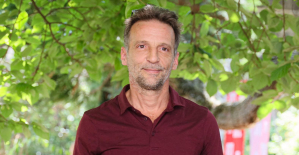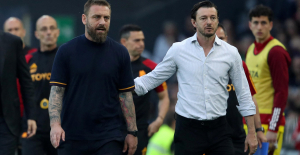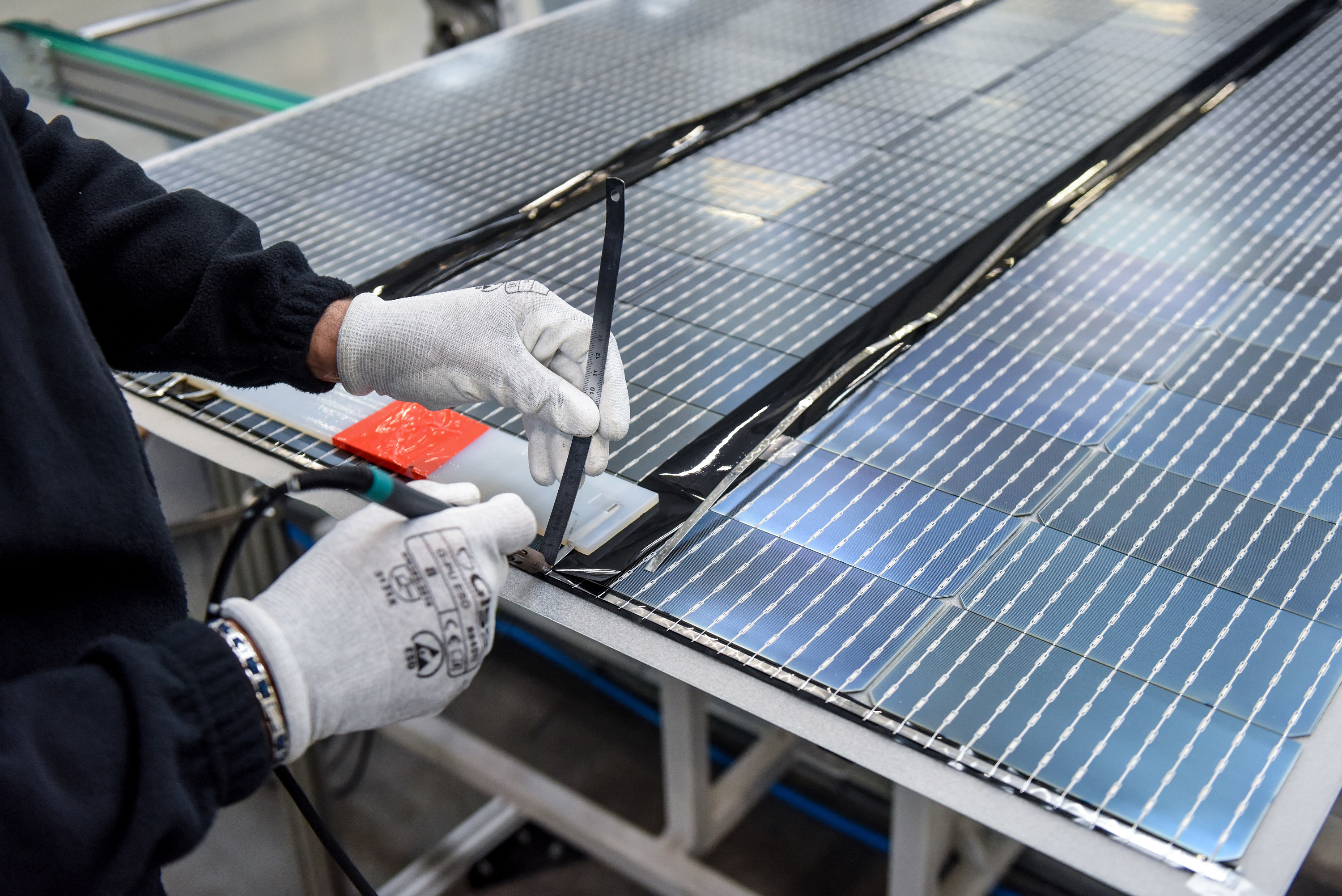Since "Zeit" published a controversial pro and contra for private sea rescue in 2018 under the title "Or should you leave it", the headline has developed a life of its own. Deutschlandfunk used the same words to discuss vaccinations, Rheinische Post discussed the Bavarian SPD and WELT debated pros and cons.
The State Working Group on Civil Rights and Democracy of the Berlin Left Party also posed a particularly controversial question on Wednesday evening: "Haft - or should one leave it?" was the title of a panel discussion with the Berlin Senator for Justice Lena Kreck (Left Party), moderated by the Berlin Left Party - MP Niklas Schrader. “As leftists we want to get out of jail, but how?” Schrader wrote ahead of the event. And the invitation said: "Left-wing politics must aim to overcome the prison principle."
The discussion about a reform of the penal system has recently picked up speed with the planned halving of substitute prison sentences by the traffic light coalition. According to plans by Federal Justice Minister Marco Buschmann (FDP), anyone who has only been sentenced to a fine because this act and guilt was appropriate, but cannot pay it, should in future be able to compensate for a day of imprisonment with two daily rates. This applies in particular to crimes such as fare evasion or shoplifting, which are often committed by the poor, homeless or addicts.
For the discussants in Schrader's office, this does not go far enough. The domestic politician is concerned with "alternatives to imprisonment as punishment," he says at the beginning of the event. “It will probably take a very long time before we get rid of prisons. But what chances do we have that something really improves in prison?”
Also on the podium: Anja Seick from the "Freie Hilfe Berlin" association, which offers services for inmates and those released from prison, and Manuel Matzke from the prisoner's union GG/BO, an association for the labor rights of prisoners. They talk about "unacceptable detention conditions" such as a toilet right next to the bed; about perpetrators who had often been victims before; about "compensation" for crimes instead of imprisonment after minor offenses and about the fact that the outside world doesn't notice anything about everyday life behind the prison walls, but society must know how the state punishes "in the name of the people".
A high rate of recidivism among formerly incarcerated people is proof that prisons promote delinquency and that the incarceration of criminals is only a short-term gain in security.
Matzke is a trained event technician and was sentenced to several years in prison in 2014 for robbery, fraud and bodily harm, according to the "Süddeutsche Zeitung". The reason for his earlier imprisonment was not mentioned at the Linken event. Today, Matzke advocates the introduction of the statutory minimum wage in prison and the inclusion of inmates in the statutory pension insurance. And he says: “A closed cell is not a good cell. We should abolish prisons.” He was glad “that we have a left-wing senator in Lena”.
The lawyer Lena Kreck has been a member of the red-green-red state government in the capital since its constitution in December 2021. She talks about her role again and again on Wednesday evening: It is a "great challenge", on the one hand, to clearly criticize the positioning on the subject of detention - "in terms of how people are treated in this society who are in a way behaving as society has decided not to tolerate such behavior" - and on the other hand, as a Senator for Justice, not being able to "snap your fingers and turn everything inside out". "These are tensions that I have to endure as a person and the left-wing idea," says Kreck.
In her first interview in the "taz" in January, Kreck said that a society had to find "answers" to undesirable behavior and that it was their job to ensure that society's agreement on imprisonment was observed. "Personally, I initially follow the idea that prison really has to be the ultima ratio, and I find it attractive when nobody is in prison anymore," she said at the time.
On Wednesday evening, too, it became clear that for the Berlin Senator for Justice, the abolition of the criminal offense of “cheating services”, which is used to punish fare evasion, can only be the beginning of a comprehensive reform. "After that, we can continue to discuss what else could be changed," she says. "One after the other." A radical reduction in alternative prison sentences is "embedded in a larger narrative, namely the question of who we actually want to punish and how".
Schrader, member of the board of the Left-wing parliamentary group in the Berlin House of Representatives and their domestic policy spokesman, is even clearer. After the event, he told WELT: "Prisons should be abolished, and that's not unrealistic utopia, as our discussion has shown." A prison sentence makes rehabilitation more difficult or prevents it. "There are various alternatives to prison that tear people less away from real life, such as community service, reparation services, open detention or forms of house arrest," Schrader continued.
With its large number of facilities, the JVA Wittlich prison complex is unique in Germany. What is the everyday life and future plans of the inmates like, what about the training of the prison officers? The prison documentation provides insights behind "Swedish curtains" in the German Eifel.
Source: WORLD
There is also a need for more work with people, better access to therapy and more ways to avoid imprisonment. "The group of offenders for whom a strict deprivation of liberty is necessary to protect the general public is likely to be relatively small."
Justice Senator Kreck observes a divergence: Although the number of recorded crimes in Germany, including violent crime, has been declining for years, the discourse is moving in the direction of "more security, more restrictions, more punishment," she says on the podium. In order to make society even safer and to keep criminals from repeat offenses, however, a "modern penal system" is necessary.
"This is not a do-gooder story, but a real contribution to the security of this society." Kreck also has a clear demand for better rehabilitation: every prisoner who is suitable for the open prison should be brought there.
According to the Federal Constitutional Court, every convicted person must have the chance to live in freedom again at some point. This can include preparations such as releases. In Berlin, outbreaks of free roamers have been reported time and again in recent years. According to the Senate Department of Justice, the proportion of prisoners who return too late or not voluntarily is less than one percent.
Although a prison break results in tighter prison conditions if recaptured, it does not in itself constitute a criminal offense without the use of violence. should be taken.
"Kick-off Politics" is WELT's daily news podcast. The most important topic analyzed by WELT editors and the dates of the day. Subscribe to the podcast on Spotify, Apple Podcasts, Amazon Music or directly via RSS feed.

 Torrential rains in Dubai: “The event is so intense that we cannot find analogues in our databases”
Torrential rains in Dubai: “The event is so intense that we cannot find analogues in our databases” Rishi Sunak wants a tobacco-free UK
Rishi Sunak wants a tobacco-free UK In Africa, the number of millionaires will boom over the next ten years
In Africa, the number of millionaires will boom over the next ten years Iran's attack on Israel: these false, misleading images spreading on social networks
Iran's attack on Israel: these false, misleading images spreading on social networks New generation mosquito nets prove much more effective against malaria
New generation mosquito nets prove much more effective against malaria Covid-19: everything you need to know about the new vaccination campaign which is starting
Covid-19: everything you need to know about the new vaccination campaign which is starting The best laptops of the moment boast artificial intelligence
The best laptops of the moment boast artificial intelligence Amazon invests 700 million in robotizing its warehouses in Europe
Amazon invests 700 million in robotizing its warehouses in Europe Switch or signaling breakdown, operating incident or catenaries... Do you speak the language of RATP and SNCF?
Switch or signaling breakdown, operating incident or catenaries... Do you speak the language of RATP and SNCF? Transport in Île-de-France: operators are pulling out all the stops on passenger information before the Olympics
Transport in Île-de-France: operators are pulling out all the stops on passenger information before the Olympics Radio audiences: France Inter remains firmly in the lead, Europe 1 continues its rise
Radio audiences: France Inter remains firmly in the lead, Europe 1 continues its rise Russian cyberattacks pose a global “threat”, Google warns
Russian cyberattacks pose a global “threat”, Google warns A new Lennon-McCartney duo, more than 50 years after the Beatles split
A new Lennon-McCartney duo, more than 50 years after the Beatles split The Curse vs Immaculée: two thrillers but only one plot
The Curse vs Immaculée: two thrillers but only one plot Mathieu Kassovitz adapts The Beast is Dead!, the comic book about the Second World War and the Occupation by Calvo
Mathieu Kassovitz adapts The Beast is Dead!, the comic book about the Second World War and the Occupation by Calvo Goldorak 'has never lived so much as now'
Goldorak 'has never lived so much as now' Skoda Kodiaq 2024: a 'beast' plug-in hybrid SUV
Skoda Kodiaq 2024: a 'beast' plug-in hybrid SUV Tesla launches a new Model Y with 600 km of autonomy at a "more accessible price"
Tesla launches a new Model Y with 600 km of autonomy at a "more accessible price" The 10 best-selling cars in March 2024 in Spain: sales fall due to Easter
The 10 best-selling cars in March 2024 in Spain: sales fall due to Easter A private jet company buys more than 100 flying cars
A private jet company buys more than 100 flying cars This is how housing prices have changed in Spain in the last decade
This is how housing prices have changed in Spain in the last decade The home mortgage firm drops 10% in January and interest soars to 3.46%
The home mortgage firm drops 10% in January and interest soars to 3.46% The jewel of the Rocío de Nagüeles urbanization: a dream villa in Marbella
The jewel of the Rocío de Nagüeles urbanization: a dream villa in Marbella Rental prices grow by 7.3% in February: where does it go up and where does it go down?
Rental prices grow by 7.3% in February: where does it go up and where does it go down? Europeans: the schedule of debates to follow between now and June 9
Europeans: the schedule of debates to follow between now and June 9 Europeans: “In France, there is a left and there is a right,” assures Bellamy
Europeans: “In France, there is a left and there is a right,” assures Bellamy During the night of the economy, the right points out the budgetary flaws of the macronie
During the night of the economy, the right points out the budgetary flaws of the macronie Europeans: Glucksmann denounces “Emmanuel Macron’s failure” in the face of Bardella’s success
Europeans: Glucksmann denounces “Emmanuel Macron’s failure” in the face of Bardella’s success These French cities that will boycott the World Cup in Qatar
These French cities that will boycott the World Cup in Qatar Champions League: semi-final schedule revealed
Champions League: semi-final schedule revealed Serie A: AS Roma extends Daniele De Rossi
Serie A: AS Roma extends Daniele De Rossi Ligue 1: hard blow for Monaco with Golovin’s premature end to the season
Ligue 1: hard blow for Monaco with Golovin’s premature end to the season Paris 2024 Olympics: two French people deprived of the Olympic Games because of a calculation error by the international federation?
Paris 2024 Olympics: two French people deprived of the Olympic Games because of a calculation error by the international federation?


















